In 1905, Eileen Mary Challans was born in Essex, England. She would grow up to become Mary Renault, a renowned and respected historical fiction and nonfiction author. Although Renault dabbled in contemporary fiction during her lifetime, her novels and biography of Ancient Greece were her most popular and critically acclaimed. These books continue to capture the imagination of historical readers to this day, from her reimagination of Alexander the Great to the Peloponnesian War.
Before dipping her toes into historical waters, Renault trained as a nurse at Oxford, where she met Julie Mullard. Mullard, also working towards a career in nursing, became Renault’s lover. The two remained in a partnership for the rest of Renault’s life.
Upon graduating from her nursing course, Renault worked as a nurse to support her writing career. From 1936 to 1945, Renault continued her dual career––even treating Dunkirk evacuees during World War II. By 1945, Renault had published three novels and was able to support herself without continuing her work in a brain surgery ward. But it was her fourth novel, Return to Night, that made Renault a household name and allowed her the freedom to move, with Mullard, to South Africa, where they found a more tolerant society––at least in terms of sexuality.
In South Africa, Renault began to focus on the writing that continues to define her career, over three decades past her death. After completing one final contemporary novel, The Charioteer, a WWII gay romance, she began work on her ancient Greek opuses. These novels would, unlike many other novels at the time, refuse to elide the homosocial and homosexual relationships of the Greek ancient world. This made Renault’s books popular both among the gay communities and historical fiction fans who found a new sense of reality and tension in her explorations of the ancient world. These, her most beloved works, are sure to be catnip to historical fiction lovers and ancient history aficionados.
Renault's Standalone Historical Fiction Novels
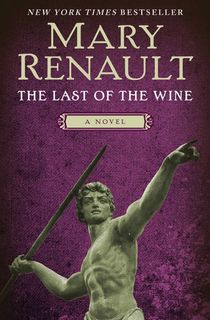
The Last of the Wine
Renault’s first crack at historical fiction places her characters in the tail end of the Golden Age, as Athens declines from its place as the center of arts, education, and power. Our main (fictional) characters, Alexias and Lysis jostle to make the most of themselves in warfare and philosophy alike, surrounded by real historical figures like Socrates and Plato. A fascinating portrait of the relationships between men who led Athens functioned, Renault quickly showed her ability for historical fiction.
Related: 10 Accurate Historical Fiction Books for Nonfiction Readers
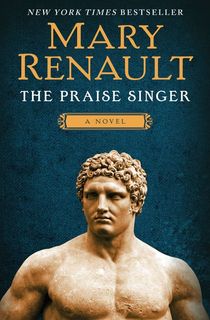
The Praise Singer
Simonides of Ceos, believed to have lived between approximately 556-468 BCE was one of Alexandria’s most beloved and celebrated poets. Over the course of his life––some nearly 90 years––Simonides chronicled the changing tides of the city-states he moved through. In The Praise Singer, elderly Simonides casts his eye back over his long and rich life, from his highly disciplined childhood through his time in the court of Peisistratos, infamous tyrant of Athens. Renault matches her lyrical tone with Simonides’s poetic abilities, making The Praise Singer a joy to read.
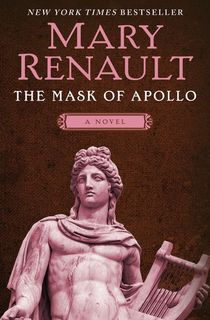
The Mask of Apollo
Renault returns, for the final time, to a main character wholly of her own creation in this historical novel following Niko, an Athenian actor. Much like Simonides, Niko’s career allows him to travel throughout ancient Greece, most notably the city-state of Syracuse as the rule of tyrant Dionysios the Elder wanes. Niko befriends Dion, uncle to heir Dionysios the Younger. Dion and Plato attempt to mold the second Dionysios into a more moderate ruler as Niko watches and becomes a successful actor and mentor in his own right. Throughout turbulence and violence, Niko turns to his golden mask of Apollo as helpmeet and conscience.
Related: 11 Fascinating History Podcasts for Every Kind of History Obsessive
Theseus Novels
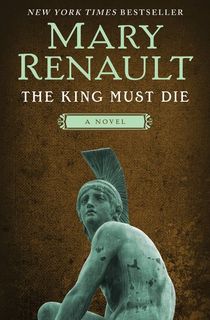
The King Must Die
Add a healthy dose of mythology to your historical fiction, and you’ll come out with a book that captures the mystery of a long-gone time with the magic of fantasy––at least, if you’re Mary Renault. Theseus, mythical founder and king of Athens, is Renault’s subject here, as he grows into the man who will face down a minotaur. Renault strips Theseus’s story of some of its more mythological trappings (seeing the gods, the existence of a literal minotaur) to reward her readers with the story of a man who believes that he is destined for greatness.
Related: 6 Fascinating, Mythical Places That Most Likely Never Existed
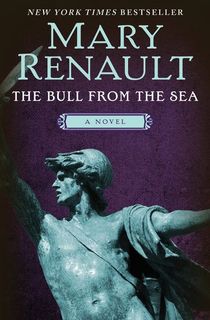
The Bull from the Sea
Theseus’s story continues as his reign over Athens begins. Although Theseus continues to believe that the gods have destined him for his role as king and hero, he also begins to rail against them for causing what he sees to be misfortunes. Renault continues to cleverly translate mythological events into plausibly real storylines. Iconic figures like Achilles, Patroclus, and Hippolyta become part of this thrilling story, weaving fact, fiction, and myth into one smooth braid of a story.
Alexander the Great Novels
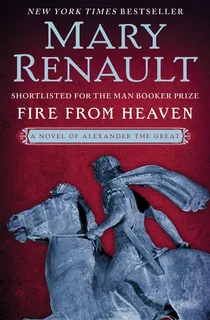
Fire from Heaven
Renault returns more firmly to the land of history with Alexander the Great’s tale––which she told in both fiction and nonfiction form. Although in the fictional telling, Renault takes license with conversations, relationships, and feelings, the rigorous research she undertook shines through as the reader journeys through the first 19 years of Alexander the Great’s life. Her deeply accurate but deeply felt retelling of young Alex’s life sets the standard for historical fiction.
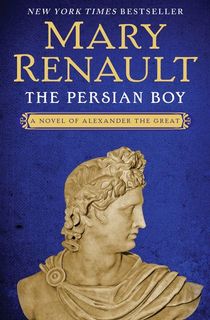
The Persian Boy
In the sequel to Fire From Heaven, a new king and a new narrator are anointed. After Alexander’s father’s death, the teen ascends the throne as Bagoas, a Persian slave who becomes Alexander’s most faithful servant––and his lover––watches. This outside perspective allows Renault to show the dominance and conquests of Alexander’s reign alongside the feelings of the conquered people.
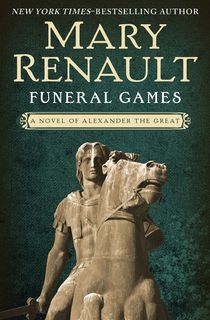
Funeral Games
As Bagoas watches, Alexander the Great lays dying. Factions are assembling, hoping to snap up the dregs of the greatest empire yet seen. Renault’s most bloody and depressing book, Funeral Games returns to a third-person narrative, allowing readers a glimpse into the minds of the many who are attempting to become the center of Macedonia, despite their apparent inability to measure up to Alexander’s brilliance or bloodthirstiness. This sweeping, terrifying narrative is perhaps Renault’s best.
This post is sponsored by Open Road Media. Thank you for supporting our partners, who make it possible for The Archive to continue publishing the history stories you love.
Feature photo of Mary Renault: Alchetron
